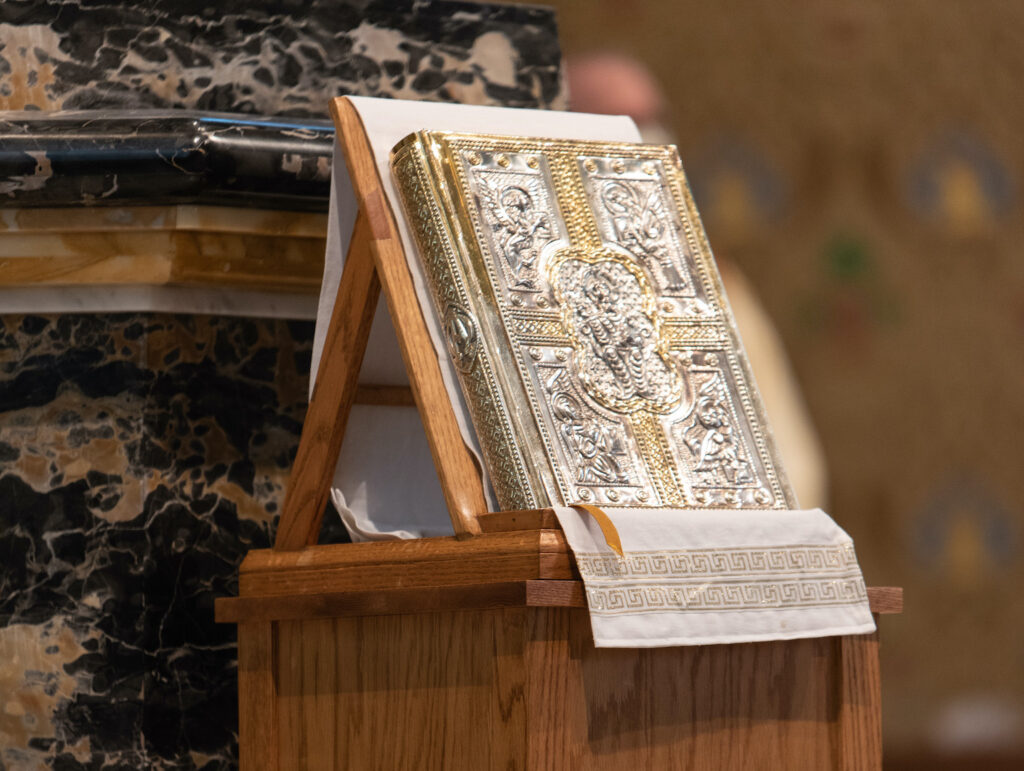Question:
A book on lives of the saints lists a St. Olympias in the fourth and fifth centuries and says that she was a deaconess of the church, “an office which existed at that time.” When did the church stop ordaining women as deacons and why? (Dunnsville)
Answer:
Clearly there were women in the early church who were called “deaconesses.” What is not clear is what, exactly, their role was and whether their ordination was a sacramental one. St. Paul in his Letter to the Romans (16:1) refers to a certain Phoebe, whom he calls (in some translations) “a deaconess of the church at Cenchreae.”
St. Olympias was, according to the New Advent Catholic Encyclopedia, “consecrated (a) deaconess” by the bishop of Constantinople in the fourth century. She had been widowed at an early age and chose to remain unmarried, dedicating her considerable fortune to helping the poor.
In the early centuries, deaconesses seem to have played a major role in the baptism of women. (Christians then were baptized naked, many of them as adult converts; since the clergy were male, modesty demanded that deaconesses take women converts into the water.) Catholic scholars have divided opinions as to whether these ancient deaconesses were actually ordained to a degree of holy orders or were simply blessed for service, like today’s lectors or acolytes.
In 2016, Pope Francis, with the encouragement of the International Union of Superiors General, created a study commission to examine the matter of women serving as deacons. Members of that commission have arrived at varying points of view.
Pope Francis spoke about this with journalists in May 2019. As to whether women in the early centuries of Christianity had been ordained sacramentally, the pope said that the Church has yet to give a “definitive response.”
Question:
At a recent Mass, I noticed a teenager chewing gum. I was appalled when I watched him come forward to receive holy Communion while still chewing his gum. Should the priest have refused to give him Communion? (West Linn, Oregon)
Answer:
Canon law (Canon 919.1) tells Catholics that they are to abstain from all food and drink (with the exception of water or medicine) for at least one hour before receiving holy Communion. The reason, of course, is to remind us how special the Eucharist is, nourishing us for life eternal. Nowhere does canon law define precisely what constitutes food and what does not.
Some might argue that since sugar- free gum has no nutritional value, it does not qualify. In my mind, gum of any kind profanes the mouth as a receptor for Communion and should be avoided.
However, I would not as a priest refuse to give the young man holy Communion. Why take the risk of embarrassing him and having him feel uncomfortable at that church or, perhaps, at any Eucharist?
Instead, why not seek him out after Mass and chat with him as to the appropriateness of chewing gum before receiving Communion? And if the problem is as common as you indicate, perhaps an occasional reminder in the parish bulletin might help.
Question:
Why do Christians feel that the coming of Jesus freed them from the 613 prescripts that Jews count in the Torah (the first five books of the Bible) and that they can adhere only to the Ten Commandments? Why those 10 and not the other 613? (Albany, New York)
Answer:
The Christian belief is that Jesus came to fulfill the law and that the essential moral principles of the Mosaic code are contained in the Ten Commandments as revealed in Chapter 20 of the Book of Exodus.
Paul’s Letter to the Colossians (2:16-17) notes that Christians are not bound by the precepts of the Hebrew law that were merely ceremonial — about “clean” and “unclean” things, about sacrifices and others temple practices.
“Let no one, then,” says Paul, “pass judgment on you in matters of food and drink or with regard to the festival or new moon or Sabbath. These are shadows of things to come; the reality belongs to Christ.”
The precepts of the Torah, as enumerated by the Torah scholar Maimonides in the 12th century, were specific. More than a dozen of the 613 had to do with idolatry (“not to make an idol for yourself,” “not to make an idol for others,” “not to turn a city to idolatry,” “not to bow down before a smooth stone”); more than two dozen listed those with whom you were prohibited from having sex — your mother, your sister, your father, an animal.
Such prohibitions are covered, the Christian believes, in a generic way by the Ten Commandments. Interestingly, the rabbi Hillel, the Jewish sage who lived during the first century before Christ, was once challenged to recite the entire Hebrew code of law while standing on one foot; he said this, “Do not do to anyone else what you would not want done to yourself.” With that, he put the other foot down and said, “All else is commentary.”

